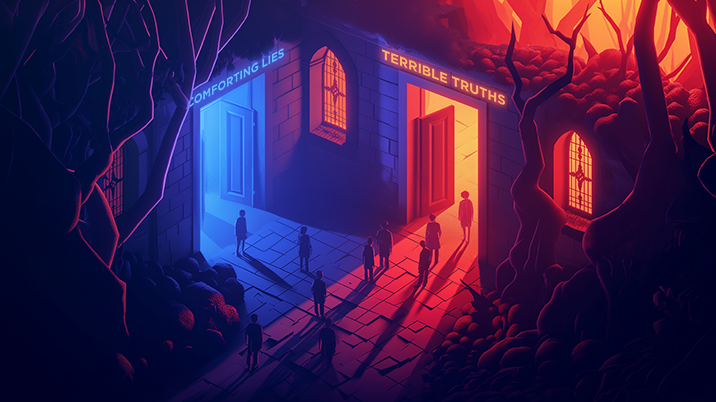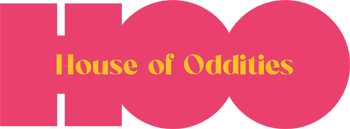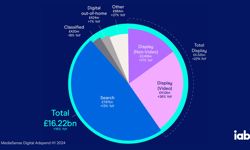
If you’ve been working anywhere near the content marketing industry in the last ten years, you’ll know that one of the most over-used terms in it is ‘authenticity’. This, supposedly, is what the people want: in the Stackla Report (2021), 81% of millennials said authenticity is important when deciding what brands they like and support.
Authentic content has always been good business for publishers with the teams to exploit it. Why would a brand write an advertising feature for their website – when they could run it in, say, The New York Times, and have it created by the New York Times’s in-house T-Brand Studio, who can research and write it in an ‘authentic’ NYT voice instead? As a trusted source of news and with a big audience to deliver it to, this is a good deal for both the client and the publisher.
After two decades of dwindling print circulations (and bigger digital audiences, who return less advertising revenue per eyeball than ‘old’ media used to), this content marketing arm of the publishing world has raked in billions. As a former creative director of News UK’s own in-house content agency Bridge Studio, I know first-hand how much revenue we could make from brands trying to get content made in a publication’s own ‘authentic’ voice.
But that’s all changing.
Authenticity is becoming harder to define. The rise of AI-generated content tools like ChatGPT, Reword, KoalaWriter and Midjourney makes content easier and cheaper to produce. And let’s be honest: publishers like Forbes, Reuters and the Washington Post have been using AI tools for years – so if it’s good enough for them, then why not for brands too?
Bypassing publishers
Brands too are becoming more savvy about how they talk to people. Substitute ‘customer’ with the term ‘audience’, and you realise that large-scale brands like BMW (2.5m followers on X.com), Nike (10m followers) and Burberry (8.1m followers) have bigger audiences than most publishers – and free, easy to use social platforms where they can talk to them in their own, (ahem) authentic, voice. Even smaller companies like Surreal Cereals (71,000 followers on LinkedIn) have carved out their own unique voice to develop stronger, lasting relationships with people who have never bought their product.
And audiences too no longer need content to come from their favourite publication to trust or enjoy it. Studies show that people are happy to consume branded content as long as it is entertaining and / or informative, the best example being one of the most successful films of the last year – The Barbie Movie, from Mattel.
In a world littered with deepfakes and AI content, and where even Royal family photos are digitally retouched, authenticity doesn’t mean much to audiences anymore.
So where does this leave publishers?
Well, the content market isn’t going away. If anything, it is due to grow: The CMI Annual Content Marketing Survey (2022) found that seventy percent of B2C marketers said that content marketing has become more important to their organisation over the last year, and almost three-quarters (73%) of content marketers expect their organisation’s investment in the practice will increase or remain the same this year.
That doesn’t mean the extra money is going to go to publishers, though.
The lucrative content marketing arms of most media owners is under threat. Not from rival publishers or the rapid rise (and fall) of influencer marketing, as some predicted. The biggest threat is from audiences changing the way they trust and choose what they watch and read.
Try honesty
One potential solution (that is sadly in short supply these days) is honesty.
Brands are increasingly finding honesty is the best policy when it comes to engaging audiences. When fast food chain KFC ran out of chicken, its honest response won it lots of support. Newsworks said: “the brand was praised for facing up to the issue, with 733 articles dedicated to KFC ‘FCK’. The reaction was overwhelmingly positive and KFC enjoyed a marked increase in its trustworthy measure following the campaign.”
In the US, vegan oat milk brand Oatly won the night at the Superbowl in 2021 with its deeply strange ad. Eschewing the usual high production celebfest that is the cornerstone of most Superbowl ads, the 30 second clip featured Oatly CEO singing a song while playing a keyboard in a field. The stripped-down honesty of the ad won lots of praise – and brilliantly, the company even sold a t-shirt that reads, “I Totally Hated That Oatly Commercial” on their website, just for the haters. It sold out.
This kind of honesty is hard for brands to do – and live up to – on its own channels. And that’s where publishers can find they still have relevance. It’s safer for a brand to try a more honest content approach to a target audience of attractive readers than it is to risk alienating customers on its own channels. And honest content can be hugely engaging too. Imagine if IKEA stopped trying to pretend its kitchens are built to the same quality standard as your high-end Tom Howleys or Smallbone of Devizes – and instead acknowledged that they’re still pretty good, sustainable, and so cheap that if you get bored of it, you can change it three times before you’ve even approached the cost of a Poggenpohl kitchen? I’d read that – and I’d trust it too.
When it comes to content partnerships, publishers need to start advising clients that the best ways to engage audiences is not through false ‘authenticity’, but by offering radical honesty that can cut through the noise. It shouldn’t be that hard: after all, speaking truth to power is the foundation on which most major publishers and news brands have built their reputation on.

About us
House of Oddities (or HOO, for short) is a full-service content agency that dares to be different. With decades of experience in bridging the gap between editorial and commercial in News UK, GQ, The Telegraph, The Economist, Monocle and more, our team can provide the strategy, insight, wild ideas and creative production skills to help publishers transform their solutions offerings to brands and clients. You can find out more at www.hoodares.com










